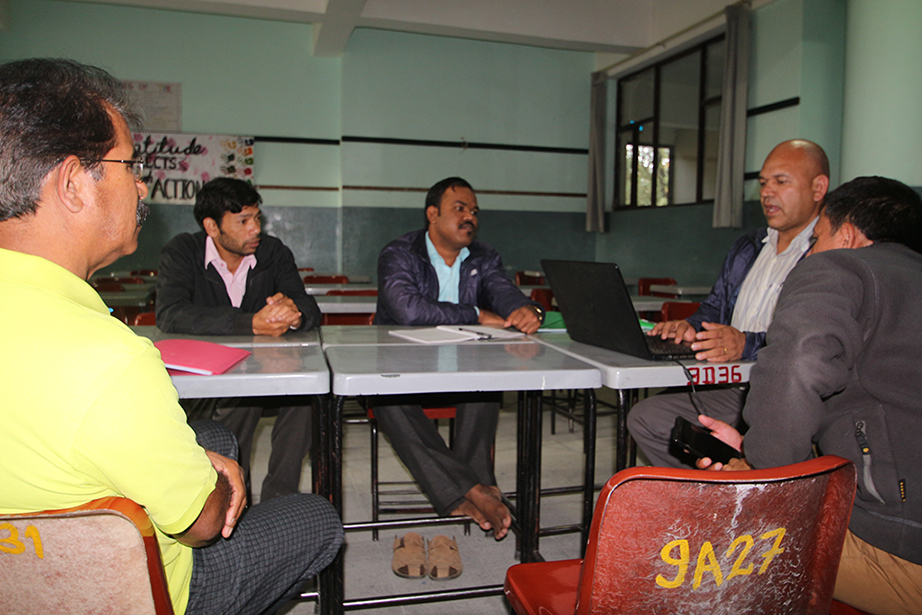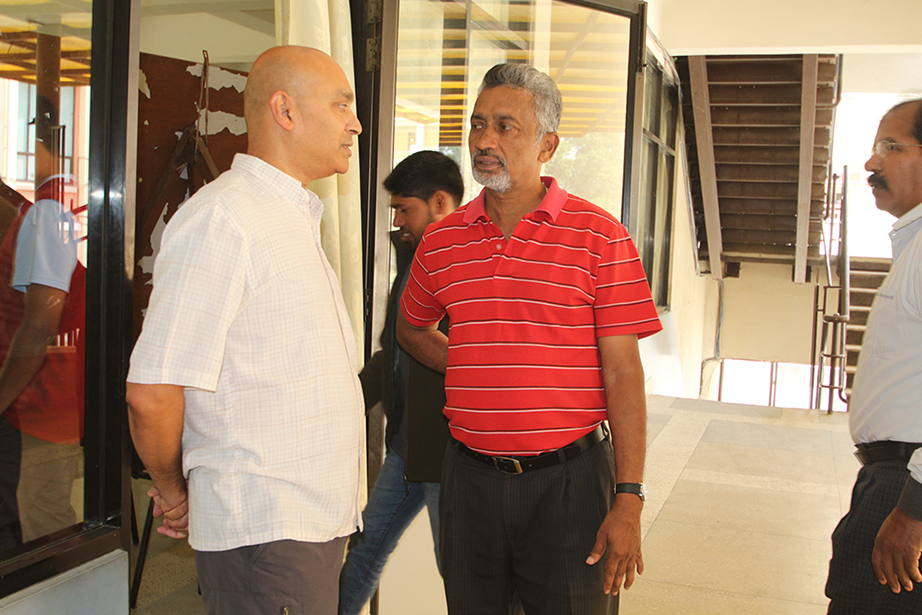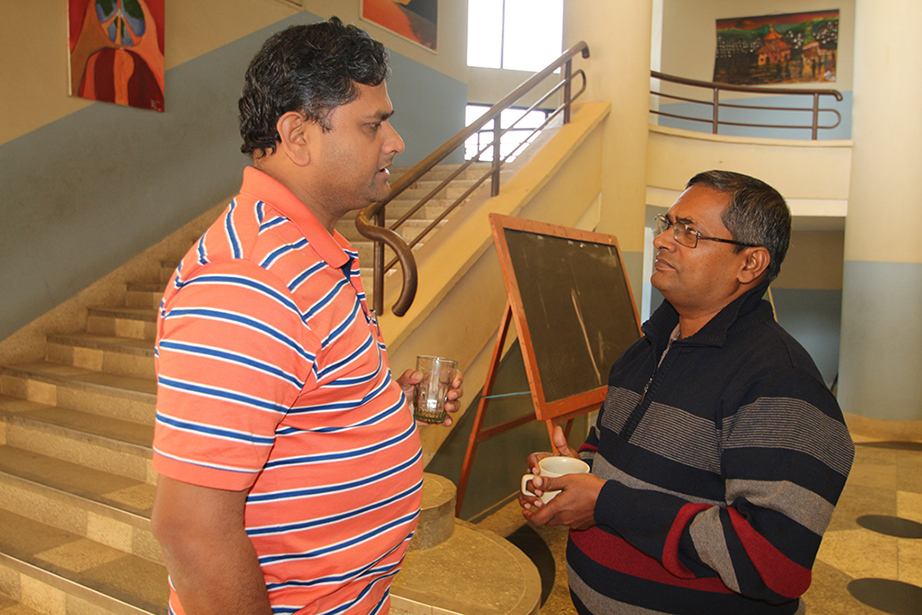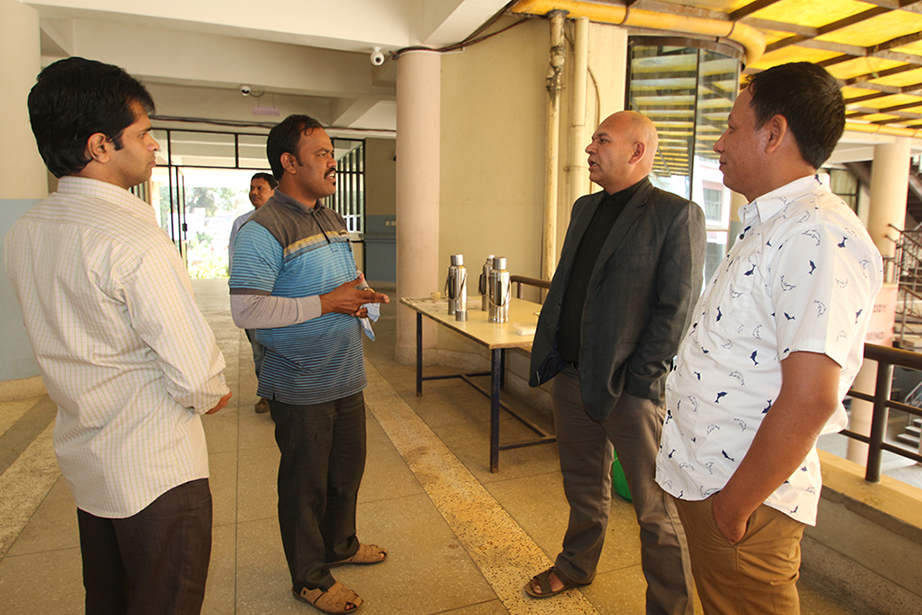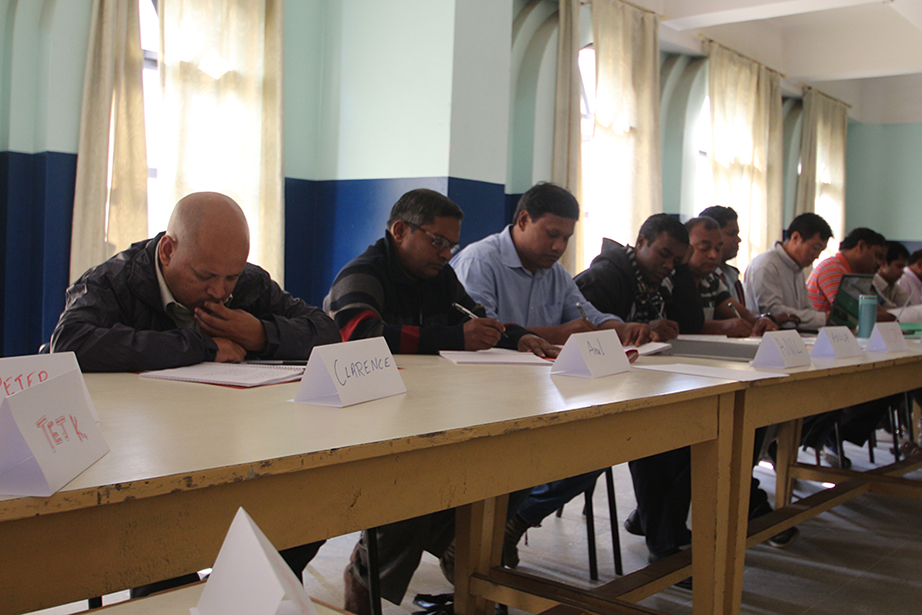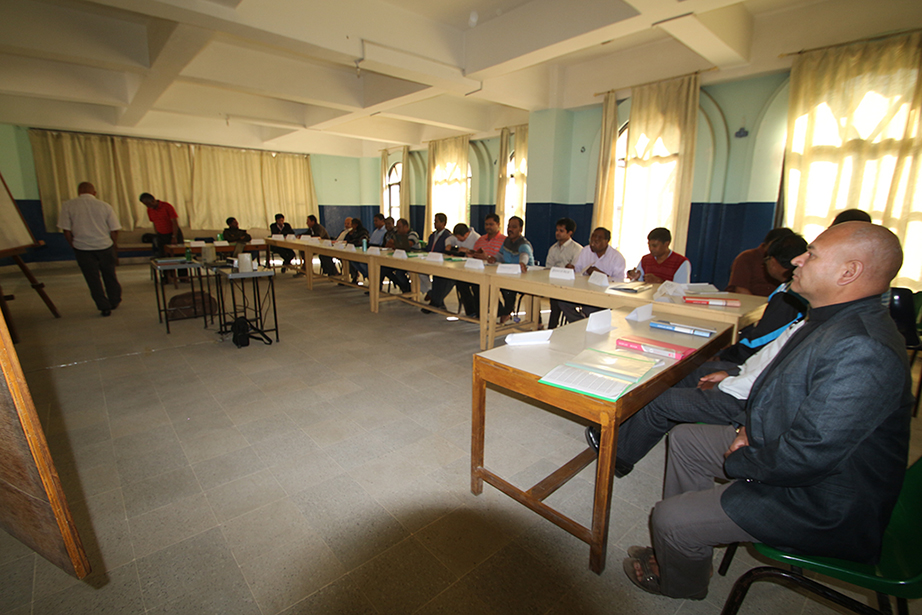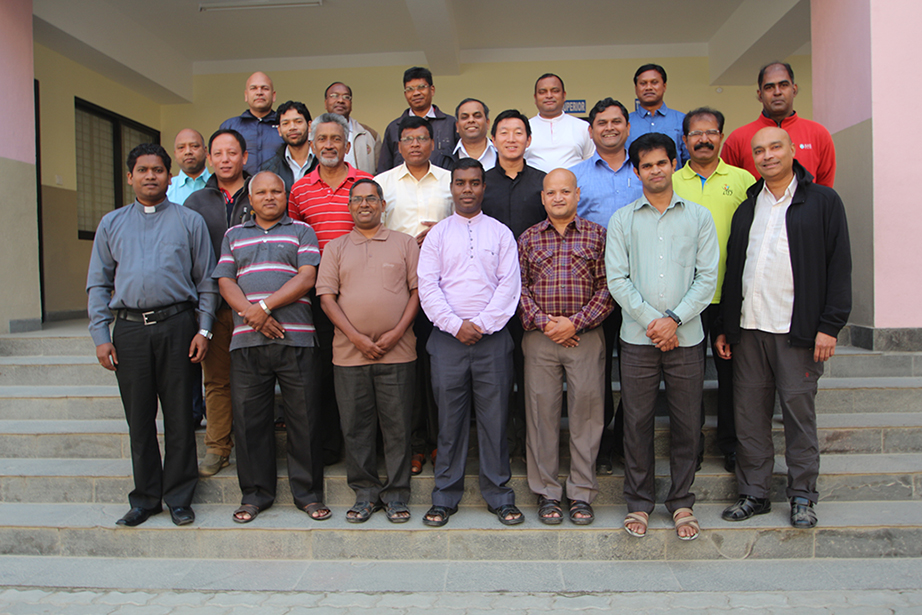
The Stockholm Diocese of Sweden through Mr. Charles Camara organized and funded the Project Cycle Management workshop for the Jesuits in Nepal. There were 25 Jesuit participants from all over Nepal. The workshop was designed for Five days [September 16 to 20]. The workshop began with a general introduction of the participants and a brief biography of Mr. Charles Camara, the resource person. He elaborated about his inception into funding agency. He divulged into the context of project writing and the need of it today for the participants. The Afternoon was dived into two sessions. Fr. Juel expounded the Catholic Social Teaching to set the mood into faith based project writing. Similarly, Fr. Boby dwelt upon the aspect of Jesuit Spirituality of project writing. The days used to begin with a short prayer and end with a reflection and a thanksgiving prayer. The workshop taught the participants various concepts: Problem Tree, Objective Tree, Strategic Analysis, LFA-Matrix, etc. The Jesuits had to go through a process of conceptualizing a problem to coming up with a complete proposal ready to be sent to a donor agency. The goal of this training was to make participants acquire adequate knowledge about how to apply each step of “Project Cycle Management” (PCM) and the method “Logical Framework Approach” (LFA) to design, implement, monitor, document and report a development-oriented or pastoral project, as well as fund raised for it. The objectives of the training were successfully acquired by the Jesuits. Firstly, they learnt practical skills in how to apply each step of planning, Implementing, monitoring, documenting, reporting an evaluating a project. Secondly, they learned how to apply LFA as a practical tool in development work, especially in the preparation of a project proposal, monitoring the intervention and preparation of progress and final reports. Thirdly, the Jesuits learnt how to conduct organizational assessment by dynamically applying SWOT; and learned how to fund raise for different kinds of projects and program. A few months earlier the Jesuits were asked to prepare themselves by reflecting upon their present state of knowledge of each of above said concepts and ideas. And asked to reflect upon the “Jesuit Spirituality” and its connection with the development and pastoral work, especially as pertaining to operating areas and as the nature of their work.
